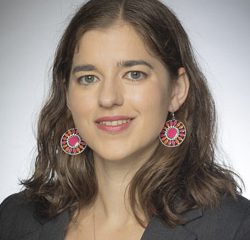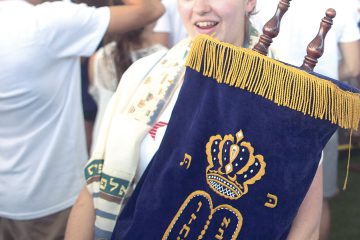Giving & accepting

By Rabbi Tina Sobo , Temple Israel
As I write this, we are in the midst of reading the Torah portions about constructing the Mishkan, the Tabernacle.
I was reminded of the Chasidic teaching about the little boy who goes out into the woods to pray for longer and longer periods of time.
His father questions his actions, and the boy says that he is going to pray. His father asks him, “Don’t you know that God is the same everywhere? You don’t have to go to the woods to pray.”
The little boy answers, “Of course I know God is the same everywhere; but I’m not!”
And in my mind, the boy scampers out the door into the woods with the father standing defeated in the doorway.
As we read about the Mishkan — and building a place that God may dwell among us — this story stands out. Isn’t God the same everywhere? Do we need a Mishkan to be in relationship with God?
For me, God is always dwelling among us, but like the little boy, we are not always attuned to seeing, hearing, or remembering that fact.
The action of building the Mishkan brought the community together to do something for the sake of God, unlike the Tower of Babel or the Golden Calf.
The Torah does not tell us how much of each item is needed or who brought how much of what.
Rather, it tells us — in seemingly painstaking detail — the items to be built, and in the end, an accounting of how much was used.
But the Torah does not tell us if these were the same materials and amounts that were intended to be used.
To build the Mishkan, we had to be willing to bring gifts of our hearts; we had to be willing to accept the gifts that others brought, and we had to know when to say ‘enough.’
When we do these things, we feel God’s presence among us. When we do these things, we bring God among us.
But this year I saw one more piece of the story: God told Moses to accept the gifts from the people. Moses was not to judge if they brought enough, if they brought what was needed, if they brought too much.
Moses was to accept gifts until there was enough. Sometimes we are very quick to offer gifts, especially when someone else is in need; but we are often too proud to graciously accept that which is offered. I offer to bring food to a friend who is sick, but have I accepted the favor in return?
As we open our doors and hearts to those in need at our Seders, may we carry this message in our hearts through those seven or eight days and beyond; may we attune ourselves to God’s presence in the giving and accepting of the myriad gifts we can bring one another, and in doing so, feel a part of a much bigger, metaphorical Mishkan here in Dayton.
To read the complete April 2019 Dayton Jewish Observer, click here.




